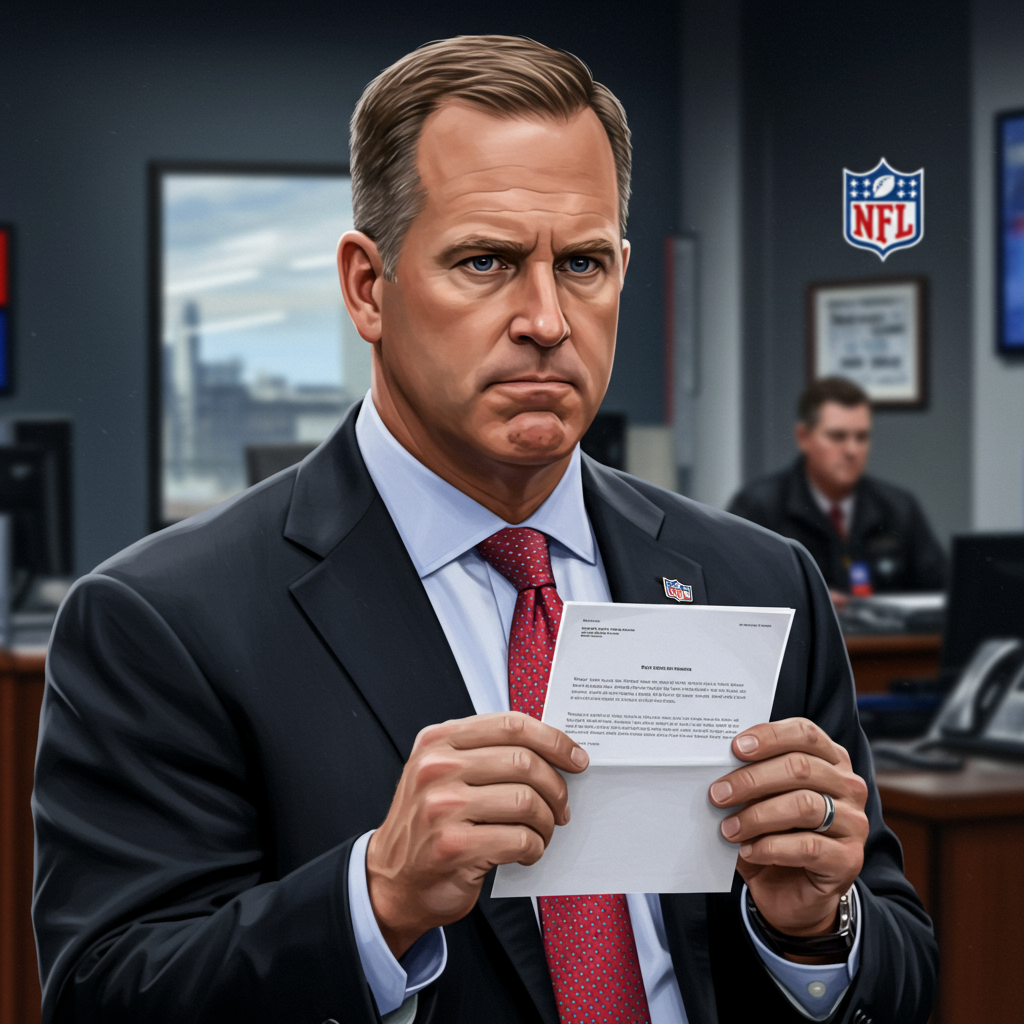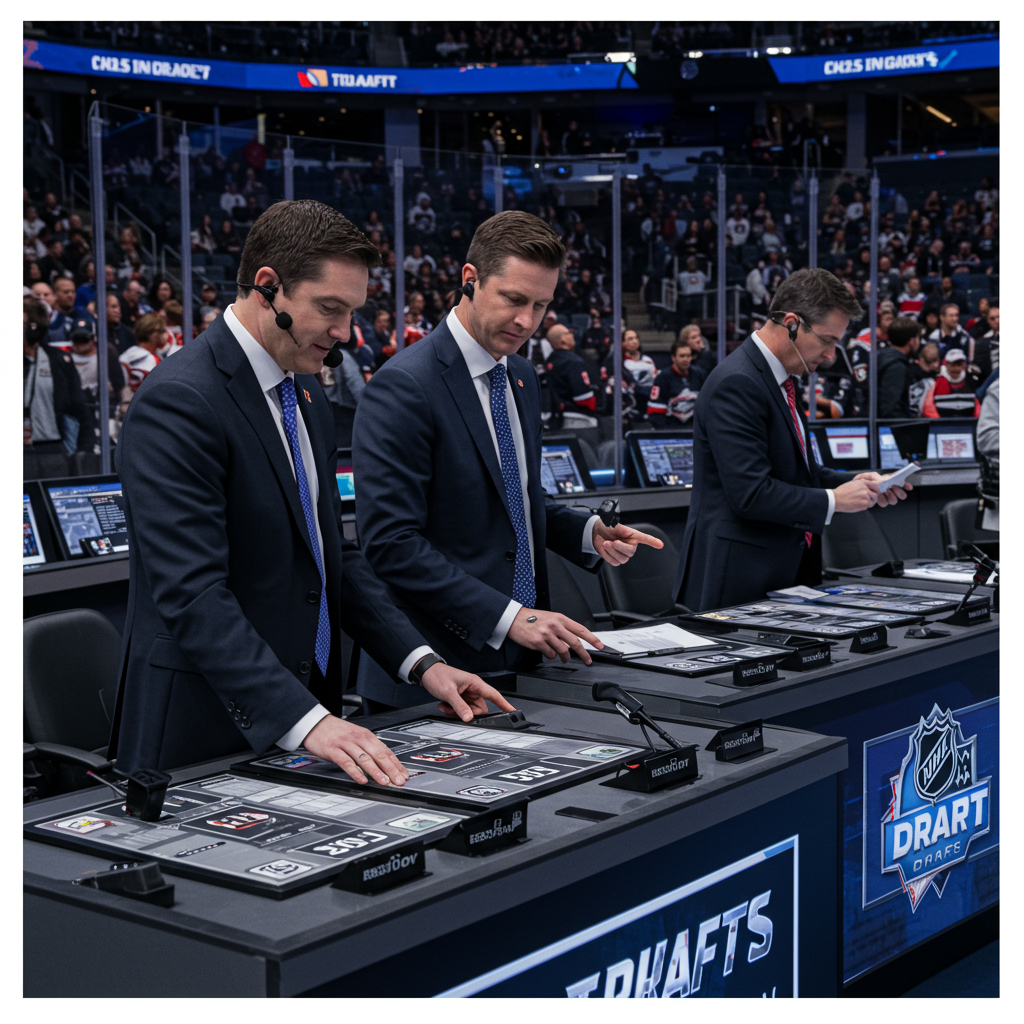The National Football League Players Association (NFLPA) finds itself engulfed in significant internal turmoil. This period of heightened scrutiny follows the unexpected resignation of executive director Lloyd Howell. Amid an atmosphere where some within the union are reportedly sensitive to external examination, a recent internal email has ignited a firestorm, raising serious questions about past leadership and the organization’s future.
This extraordinary internal discord came to light through an email message obtained by Pro Football Talk. It reveals a deep rift within the player’s union, sparking immediate concerns about its stability and direction. The email’s contents underscore a critical moment for NFLPA leadership as it navigates a sudden vacuum at its highest echelons.
The Unprecedented Internal Scrutiny Facing the NFLPA
The resignation of Lloyd Howell, the former executive director, sent ripples through the NFLPA. This departure has triggered an intense period of internal examination, perhaps more acute than any external pressure the union currently faces. Such a leadership transition inherently brings challenges, but the manner in which this situation unfolded has amplified the tension.
Craig Jones, the NFLPA’s lead security officer, initially disseminated an email to all union staff, formally announcing Howell’s exit. While this initial message was a standard procedural update, it soon became the catalyst for a much more explosive exchange, revealing the underlying frustrations simmering within the organization. This event highlights the complexities of managing a large, influential professional sports union.
A Midnight Accusation: Jones’s Email Revealed
The situation escalated dramatically with a follow-up email from Craig Jones. Sent at precisely 4:58 a.m. ET, this message was a direct response to a communication from P.R. executive Liz Allen addressed to all NFLPA staff. Notably, the response also carbon-copied general counsel Tom DePaso and NFLPA president Jalen Reeves-Maybin, indicating a deliberate and pointed challenge to senior figures.
Jones’s email immediately seized attention with its stark and accusatory tone. He directly questioned, “…..and what of JC Tretter?” This was not a rhetorical query; Jones proceeded to launch a blistering attack on the former NFLPA president. He explicitly labeled Tretter as “the progenitor of this whole tawdry episode of poseurs, 30 pieces of silver, player leadership manque and avarice.” This powerful condemnation implies that Jones views Tretter as the primary architect of a series of morally questionable and self-serving actions within the union.
The reference to “30 pieces of silver” is a clear biblical allusion, strongly suggesting betrayal or a corrupt exchange of values for personal gain. “Player leadership manque” translates to a profound lack or deficiency in true player leadership, while “avarice” points directly to greed as a driving force. Jones concluded his impassioned statement with a plea, “What of him? God bless the NFLPA so that it may return to its hallowed annals.” This final remark underscores a deep desire for the union to reclaim its integrity and historical respect, suggesting a perceived deviation from these foundational principles.
Unpacking the Allegations Against JC Tretter
The direct and severe accusations leveled by Craig Jones against JC Tretter introduce a significant layer of controversy to the already turbulent NFLPA landscape. As a former NFL player and a recent president of the players’ union, Tretter held a prominent position of trust and influence. Jones’s words, particularly the unspecified “tawdry episode,” hint at a deeper narrative of past events that remain largely unaddressed publicly.
While the specifics of the “tawdry episode” are not detailed in the leaked communication, the strong language used by Jones suggests actions that were, in his view, deceitful, self-serving, or contrary to the best interests of the players. For a lead security officer to make such a public and forceful statement within internal communications speaks volumes about the depth of dissatisfaction and distrust brewing inside the organization. The email itself serves as a rare glimpse into the often-opaque world of professional sports union politics and governance.
The Silence from NFLPA Leadership
Following the public revelation of Craig Jones’s incendiary email, the NFLPA did not offer an immediate response to requests for comment. This silence, while perhaps strategic, leaves a void that allows speculation to flourish regarding the union’s internal stability. The absence of an official statement can be interpreted in several ways: perhaps the union is still grappling with the ramifications, planning a comprehensive response, or is simply too consumed by internal affairs to address external inquiries immediately.
Regardless, the lack of an immediate public explanation contributes to an environment of uncertainty for both union staff and the players they represent. It also raises questions about the overall transparency and communication protocols within the organization during a critical leadership transition.
Navigating the Leadership Vacuum: Who’s Next for the NFLPA?
With Lloyd Howell’s sudden departure, the NFLPA executive committee is now actively engaged in the crucial task of identifying and appointing an interim executive director. This period is vital for the union, as it seeks to restore stability and confidence among its members. The qualities needed for this transitional role are immense, requiring a leader who can not only navigate complex internal dynamics but also command respect externally.
Interestingly, the author of the original report, Mike Florio, offered an unconventional proposal: Craig Jones himself. Florio suggested that given the “moxie, courage, and passion” currently needed within the union, Jones might be a fitting candidate for the interim executive director position. This recommendation highlights a belief that Jones’s willingness to speak out, even controversially, demonstrates the kind of decisive and bold leadership that could be beneficial during this turbulent time for the NFLPA.
Implications for Player Representation and Union Trust
The ongoing internal strife within the NFLPA, epitomized by Jones’s scathing email, carries significant implications for player representation. A union mired in internal disputes risks diverting focus from its primary mission: advocating for the rights and welfare of its members. Such public discord can erode player trust in their leadership and the efficacy of their collective bargaining agent.
For the NFLPA to move forward, it must not only fill the executive director position but also address the underlying issues that led to such an open display of animosity. Restoring trust and unity among its ranks will be paramount to ensuring the union can effectively represent the interests of its players in future negotiations and challenges. The ability to demonstrate a united front will be crucial for the union’s long-term health and influence in professional football.
Frequently Asked Questions
What specific accusations did Craig Jones make against JC Tretter?
Craig Jones, the NFLPA’s lead security officer, accused former NFLPA president JC Tretter of being “the progenitor of this whole tawdry episode of poseurs, 30 pieces of silver, player leadership manque and avarice.” These strong words imply that Jones believes Tretter initiated or was central to a series of deceptive, self-serving, and greedy actions that demonstrated a profound lack of true leadership, potentially betraying the union’s core values.
How does this internal discord impact the NFLPA’s search for a new executive director?
The internal discord, particularly the public nature of Craig Jones’s email, complicates the NFLPA’s search for a new executive director following Lloyd Howell’s resignation. It creates an atmosphere of instability and urgency, requiring the executive committee to find a leader who not only possesses strong management skills but also has the “moxie, courage, and passion” to unite a fractured organization and restore confidence among players and staff. The next leader faces the immediate challenge of addressing lingering resentments and fostering transparency.
What are the broader implications of a high-ranking NFLPA officer making such public internal accusations?
When a high-ranking officer like Craig Jones makes such incendiary accusations publicly within internal communications, it signals deep-seated issues within the organization. This can severely impact the NFLPA’s reputation, erode player trust in their leadership, and potentially weaken the union’s bargaining power in future negotiations with the NFL. It also suggests a significant breakdown in internal communication channels, as grievances are aired in a manner that creates more public scrutiny rather than resolving issues internally.
Conclusion
The recent internal revelations within the NFL Players Association paint a vivid picture of an organization at a critical juncture. The departure of executive director Lloyd Howell, coupled with the blistering accusations leveled against former president JC Tretter by lead security officer Craig Jones, has cast a shadow of uncertainty over the union’s immediate future. As the executive committee deliberates on its next leader, the need for transparent, unified, and principled governance has never been more evident. The ongoing developments will undoubtedly shape the direction and effectiveness of player representation in professional football for years to come.



